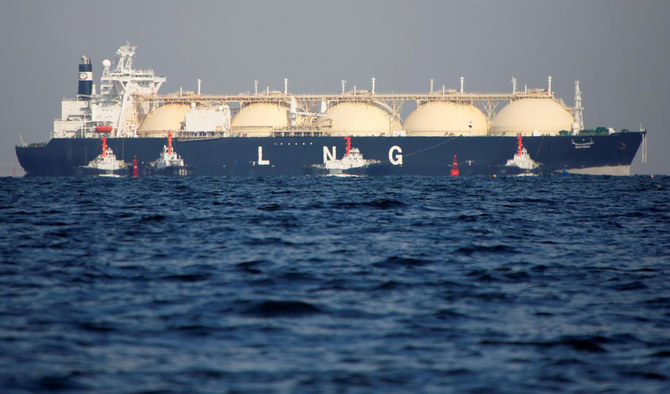KARACHI: Pakistan expects to save about $8 million by importing low-cost liquefied natural gas (LNG) after Dubai’s Emirates National Oil Company Limited (ENOC) defaulted on its supply commitment last week, a senior official confirmed while talking to Arab News on Saturday.
Pakistan LNG Limited (PLL), a state-owned entity that procures and imports the commodity, said on Friday it had arranged one more LNG cargo at low price for the month of February by floating an urgent tender.
“The price is approximately 22% lower than the price of the bidder that withdrew its bid earlier,” said the PLL statement.
Pakistan is expected to benefit from the situation since it may be able to save around $8 million on the cargo, according to a senior PLL official. “We will know the actual price after Brent of January is closed,” the official, who declined to be named, said.
Last week, ENOC refused to deliver the cargo when spot LNG prices increased to an all-time high of $32.50 per mmbtu from an all-time low of $1.825 per mmbtu in April 2020. The prices cooled down this week, however, after Japan, China and South Korean reduced their procurements from the spot market.
The spot LNG market rates now hover around $6 per mmbtu which is 12 percent of Brent for April contracts.
“Japan, China and South Korea have procured what they wanted,” said Muhammad Riazuddin, former CEO of the Khyber Pakhtunkhwa Oil and Gas Company Limited. “What is left in the market is the residue, which is why the prices are dropping.”
Pakistan faces gas shortages in winter due to its growing demand. This is usually managed by diverting the supplies to domestic consumers from industries, fueling stations and captive power plants. Experts believe, however, that only long-term contracts can provide viable solution to the problem.
“The government should realize the gravity of the situation and try to secure long-term contracts with companies,” Riazuddin said. “The price is only one dimension of the problem. A bigger consideration relates to the working of industry and economy that cannot be imperiled.”
“Countries cannot just rely on spot market which is about 10-12 percent of the bulk market,” he continued, adding: “Pakistan’s energy managers need better understanding of the dynamics of LNG trading.”
















